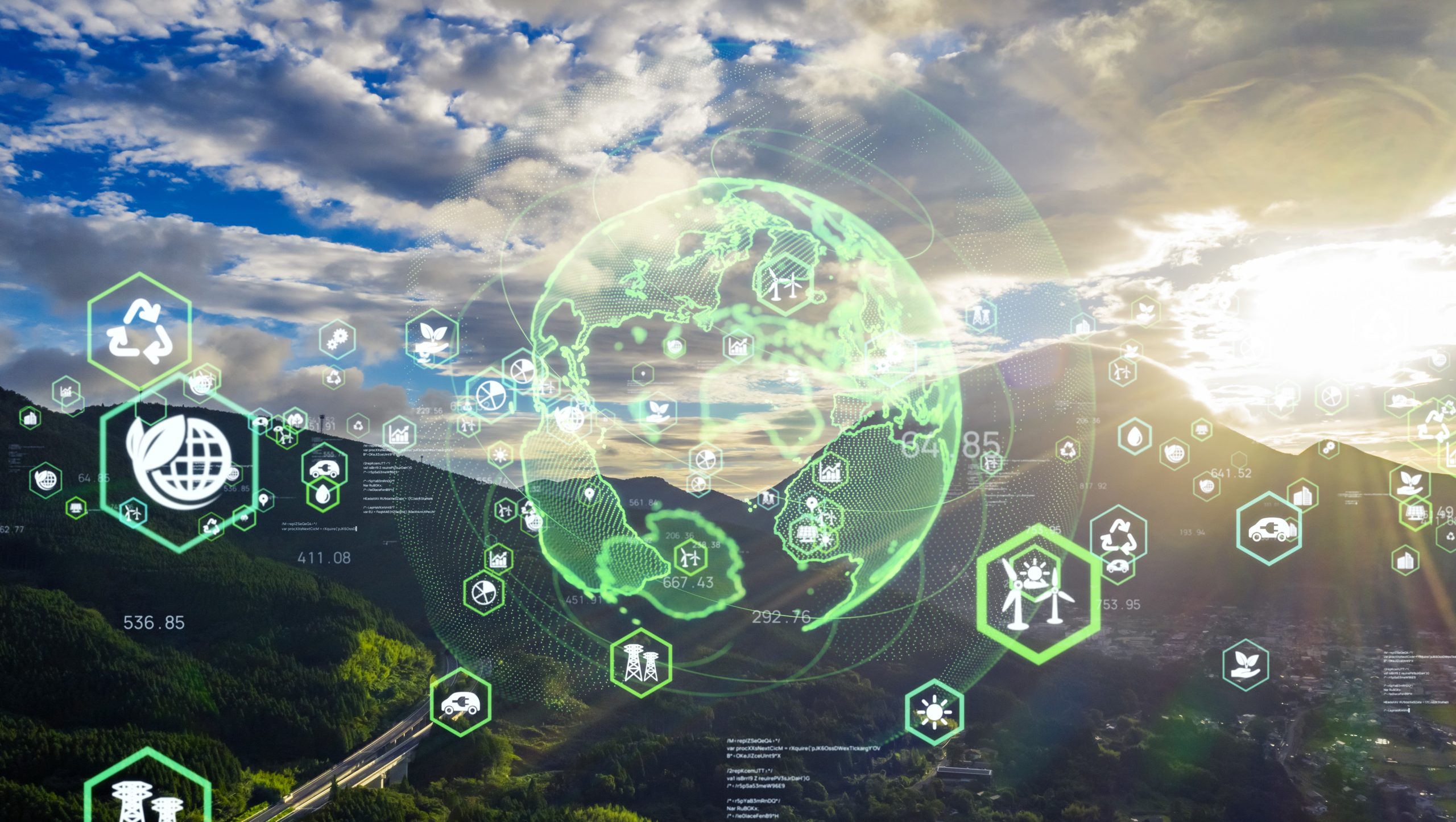Artificial Intelligence for the Environment
Building a net zero data space for AI applications

Objectives
The project seeks to address this issue by developing an online data catalogue focused on identifying, mapping, and structuring high-quality, and increasingly AI-ready, datasets, for key use cases and sectors that are relevant to both the transition to net zero and to climate resilience.
An international data initiative at the intersection of climate and AI to support key sectors in the transition to net zero
In partnership with the UK-based Centre for AI and Climate, the core outputs from the project include discovery research informing users’ needs for the data catalogue, the data catalogue itself, iterative in nature (developed via ongoing engagement with AI and climate communities to identify improvements and additional functionality), strategic bilateral country-level partnership events, and publication of standardised metadata identifiers for relevant data sets to facilitate dataset identification.
In 2021, GPAI produced a report titled ‘Climate Change and AI‘, which assessed opportunities to apply AI to climate challenges, identified bottlenecks, and recommended actions governments could take to accelerate adoption of AI in support of net zero objectives. The report was presented at COP26 and GPAI’s Paris Summit, and has gained significant traction since its release, being recognized as a landmark report by leaders in technology, climate, and policy.
One of the most important bottlenecks identified was that researchers and innovators seeking to apply AI to climate challenges spend a disproportionate amount of time finding relevant, high-quality, “AI-ready” datasets. This acts as one of the most significant barriers to further adoption of AI to support climate action.
The ultimate impact for the project is to support the transition to net zero by increasing the number of AI-for-climate projects by making data discovery as simple as possible. Metrics to measure the impact of the catalogue (specific KPIs relating to traffic, access, and requests) will be collected. Beyond quantitative metrics, the project will conduct a survey for innovators and researchers to ascertain the wider, indirect impact of the catalogue in supporting the creation of new AI-for-climate projects, and hence climate impact. This exercise will allow for the collection of qualitative data on the ease of data discovery, creation of research projects and startups, as well as the range of their applications.
Team
Stephanie King
Director of AI Initiatives
Collaborators
Peter Clutton-Brock
Partners
Centre for Climate and AI
Collaborative opportunities with CEIMIA
Collaborating with CEIMIA means contributing to the development of responsible AI for the climate. For this project we welcome three types of collaborations:
- Governments that would like to contribute to and/or participate in this online data catalogue (either by sharing relevant data or providing financial/in-kind resources);
- Experts and individuals working at the intersection of climate and AI that may have a need for such a product (invited to contribute to the development process through consultations); and
- Organisations in the domains of electricity, transport, energy-intensive industries, agriculture, forests, buildings, and climate adaptation who want to be able to support the transition to net zero (invited to share data, contribute their expertise through consultations, or provide financial/in-kind resources).
Additionally, we welcome expert representatives from external organisations in this domain to join the team as members of the Project Advisory Group.